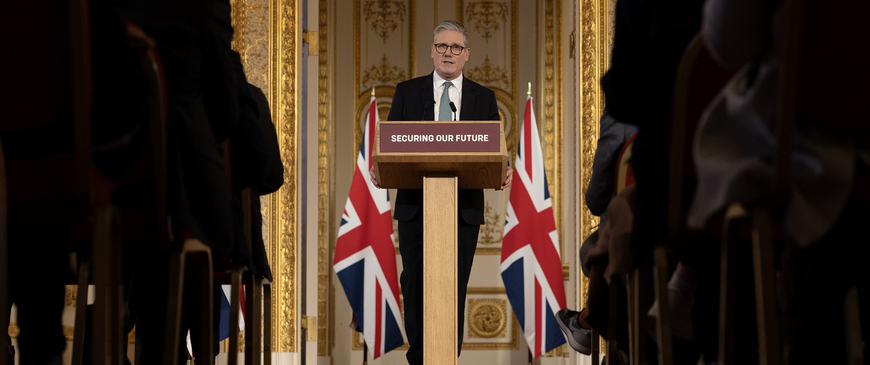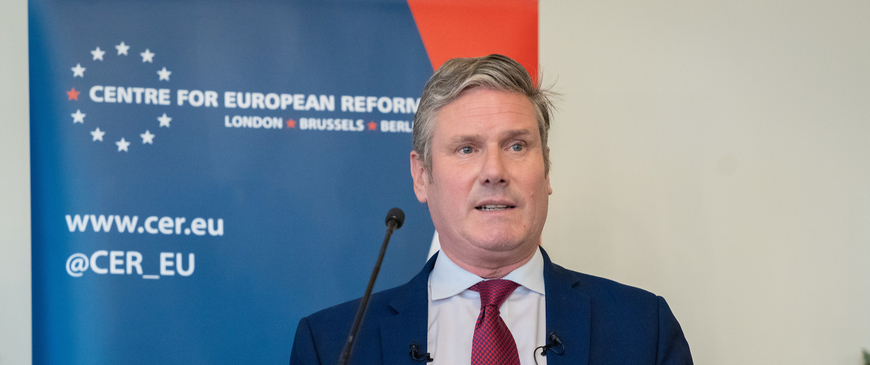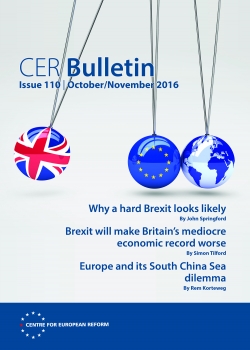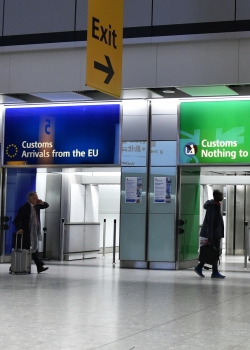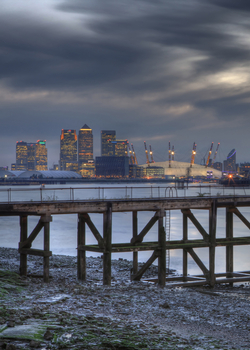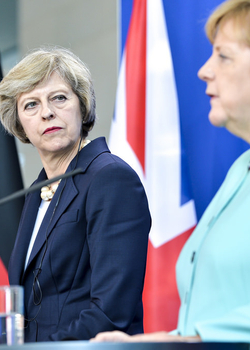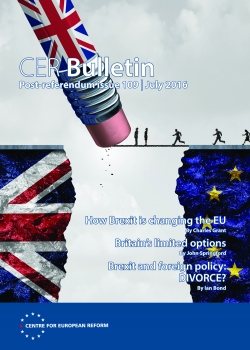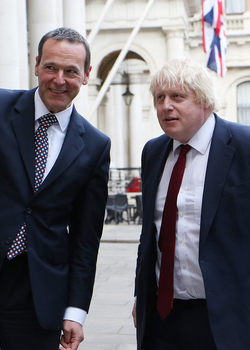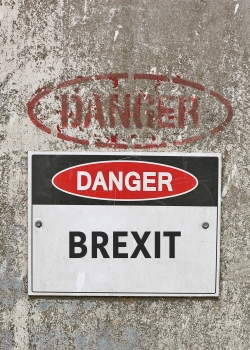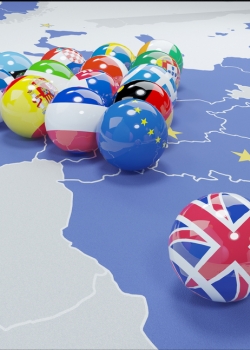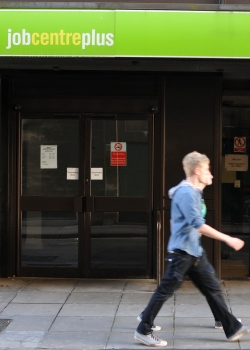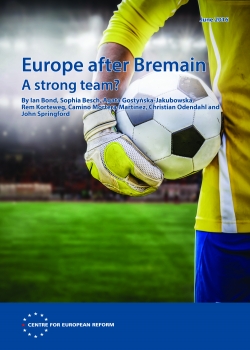Britain & EU member-states
Bulletin Issue 110 - October/November 2016
19 September 2016
- Why a hard Brexit looks likely, John Springford
- Brexit will make Britain's mediocre economic record worse, Simon Tilford
- Europe and its South China Sea dilemma, Rem Korteweg
Why a hard Brexit looks likely
19 September 2016
Recent data suggests that the Brexit vote will not cause a recession. This, coupled with the fact that British voters rejected two important principles of the EU, makes a single market exit all but certain.
Brexit will make Britain's mediocre economic record worse
19 September 2016
Britain is already an average economic performer by Western European standards. Brexit will further sap its economic dynamism and aggravate startling regional disparities
Spain's groundhog day: Why Madrid needs a government
12 September 2016
Whether or not there is a third election, Spain needs a government. Madrid must be a credible partner as the EU confronts multiple crises, from migration to Brexit.
Britain will struggle to make EU migrants ‘go home’
05 August 2016
The British government is likely to let all EU migrants who arrive before the date of Brexit stay in the country. Other options may be politically attractive, but are impractical, of dubious legality, or against British interests.
Theresa May and her six-pack of difficult deals
28 July 2016
Theresa May’s ministers need to negotiate not just one Brexit deal, but six. They must charm not only EU governments, but also every WTO member.
Britain's limited options
18 July 2016
Britain is one of the more populous countries in Europe, is highly integrated with the European economy, and is 21 miles from France. These facts limit its room for manoeuvre in the Brexit negotiations.
Post-referendum bulletin Issue 109 - July 2016
18 July 2016
- How Brexit is changing the EU, Charles Grant
- Britain's limited options, John Springford
- Brexit and foreign policy: Divorce?, Ian Bond
Brexit and foreign policy: Divorce?
18 July 2016
The British government must work hard to minimise the damage to its international influence from Brexit. First step: more investment in relations with European partners.
How Brexit is changing the EU
15 July 2016
By boosting Europe's populists, Brexit is making EU governments increasingly hostile to the 'federalism' of the Brussels institutions. It is also making Germany even more preponderant.
Long day’s journey into economic night
11 July 2016
Economic developments in Britain since the referendum suggest that a recession is coming. And the politics of the negotiation with the EU suggest the country will suffer a prolonged period of weak economic growth.
Dear EU leaders, please handle Britain with care
29 June 2016
Britain is in serious trouble. It does not need further concessions from you, but the dust needs to settle before it can take decisions about its future.
How Leave outgunned Remain: The battle of the 'five Ms'
25 June 2016
Remain suffered from unconvincing messengers, too narrow a message, difficulties over migration, a savage media and a ruthless Leave campaign machine.
The impact of Brexit on the EU
24 June 2016
The EU will not dissolve after Brexit, but it will change incrementally. The UK will probably end up with a free trade agreement like Canada’s.
There is legitimate anger at the EU, and then there is populism and nationalism
22 June 2016
Some frustration with the EU is justified, but much of it – particularly in the UK and across Central and Eastern Europe – reflects populism and nationalism.
Europe's offer to a post-Brexit Britain
22 June 2016
If Britain votes to leave, it will face three options for exiting the EU. It will also have to embark on two sets of negotiations.
Britain, the EU and security: Only one thing worse than fighting with allies
21 June 2016
The threats to Britain are diverse, and shared with Europe. Responses must be equally flexible and multinational. The age of splendid isolation is not coming back.
Why young people are right to fear Brexit
17 June 2016
Even Brexiters admit that there will be short-term economic costs to leaving the EU. Young people would disproportionately bear the brunt, and the effects would be long-lasting.
Brexiting yourself in the foot: Why Britain's eurosceptic regions have most to lose from EU withdrawal
13 June 2016
New data shows that the most eurosceptic regions of the UK are the most economically integrated with the EU.
Europe after Bremain: A strong team?
10 June 2016
If Britain votes to Remain, it should not revert to old habits of obstruction. In almost every field, it can serve its own interests best by making a positive contribution.


